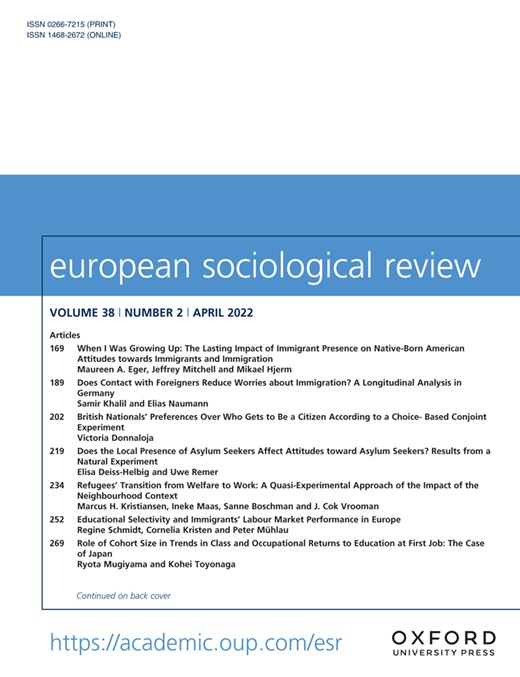-
Views
-
Cite
Cite
Marii Paskov, David Weisstanner, Cross-Class Embeddedness through Family Ties and Support for Income Redistribution, European Sociological Review, Volume 38, Issue 2, April 2022, Pages 286–303, https://doi.org/10.1093/esr/jcab040
Close - Share Icon Share
Abstract
There is long-standing evidence within the literature of class cleavages in social policy preferences. We re-evaluate class cleavages in support for redistribution by specifically focusing on the role played by cross-class embeddedness: the idea that individuals can be embedded in multiple social classes through family ties. Stronger affinity to the working class is hypothesized to be associated with stronger support for redistribution. We construct a harmonized measure of cross-class embeddedness combining information on social class positions for individuals, their parents, and their partner. The results demonstrate that cross-class embeddedness is highly common in the European context and linear probability models show that it is robustly associated with support for redistribution. Individuals who have more ties with the working classes are more supportive of redistribution and the effect is somewhat stronger for women than for men. Cross-class embeddedness through close family ties accounts for substantial heterogeneity within the upper classes. We conclude that family needs to be recognized as the unit of stratification that influences material interests and as a context of socialization that likely shapes solidarity. Cross-class embeddedness through family ties is thus important to consider in any analysis of social policy preferences.



